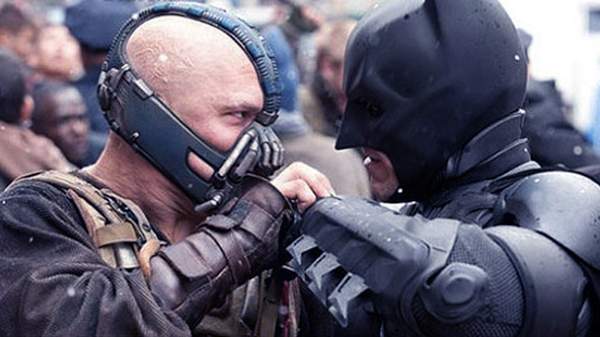Overview
Themes of consequence and redemption lie at the heart of Christopher Nolan's grim and brooding epic The Dark Knight Rises. Eight years after the events of The Dark Knight, Batman (Christian Bale) has long since vanished and Bruce Wayne's former double life has left him a cripple and a recluse. Commissioner Gordon (Gary Oldman), too, grapples with a conscience burdened by lies to protect the late Harvey Dent, while all of Gotham City stands on the cusp of an anarchist revolt borne of greed and apathy. Difficult choices await them all, pitting self-interest against selflessness — often to the extremes of life and death — as the prophesised class war finally erupts and the city’s reluctant saviour is spurred back into action.
Squaring off against Batman is the heavyset mercenary Bane (Tom Hardy). Following in the footsteps of Heath Ledger was never going to be easy, and any attempts to compare the two are probably as unnecessary as they are unfair. Hardy’s job was made all the more challenging, however, thanks to his character’s now infamous facemask, a spiderlike device that not only resulted in an awkward and muffled voiceover track but also limited Hardy’s capacity for emotional expression to nothing but his eyes. The result is a sort of effete Darth Vader, absent any real menace beyond Hardy's sheer hulking physical presence. Given Bane's objective is also identical to that of his predecessor in Batman Begins, there’s an overall "R'as al Ghul Version 2.0" air to the character, which feels like a missed opportunity for both fans and Hardy alike.
The remainder of the cast is distinctly Inception-esque, with Hardy and the old Batman regulars joined by Joseph Gordon-Levitt and Marion Cotillard. Anne Hathaway rounds out the ensemble as the beguiling Selina Kyle, a cat burglar with a conscience who acts as both temptress and tormentor to the Wayne/Batman double act. Hathaway sparkles as the implied (but never named) Catwoman, bringing both a playfulness and sensuality to the role.
Filmed principally within New York City, including inside the Stock Exchange, Nolan's allusion to the global financial crisis and the Occupy Wall St movement feels a little heavy-handed at times, as does the uncharacteristically expository dialogue scattered throughout the film. On the flipside, the cinematography is predictably stunning and the main set pieces once again bring out the very best in Nolan: the pursuits are frenzied, the fights are savage, and the explosions are enormous. You get the sense Nolan’s at his most comfortable when the stakes are at their highest; the bigger and more imaginative the shot, the better he delivers.
Epic in its scale and setting an imposing benchmark for all future films (not just comic book adaptations), The Dark Knight Rises represents an ambitious, honourable, and utterly satisfying conclusion to this genre-defining trilogy.
